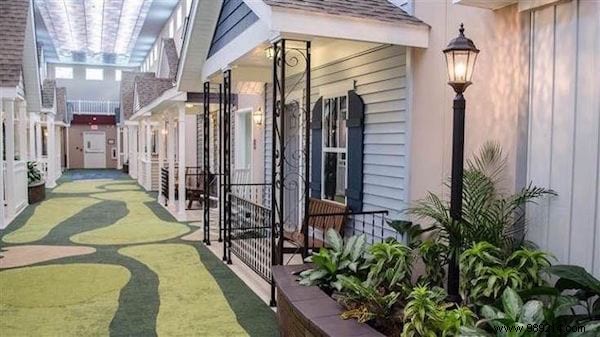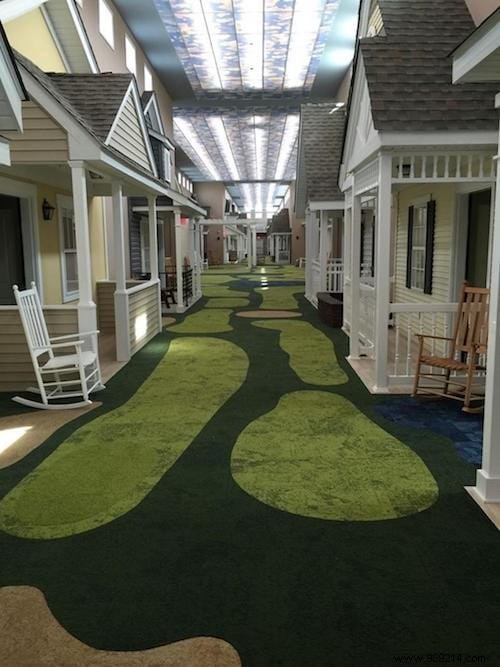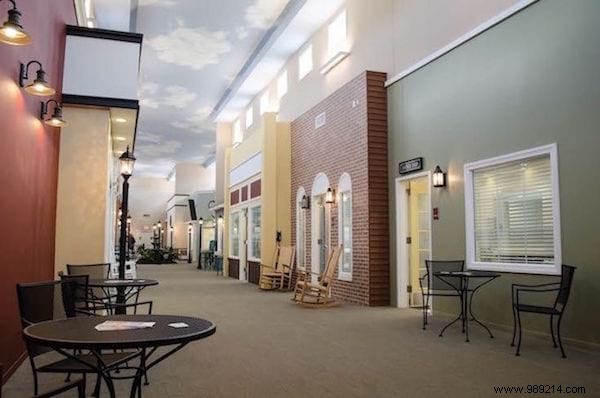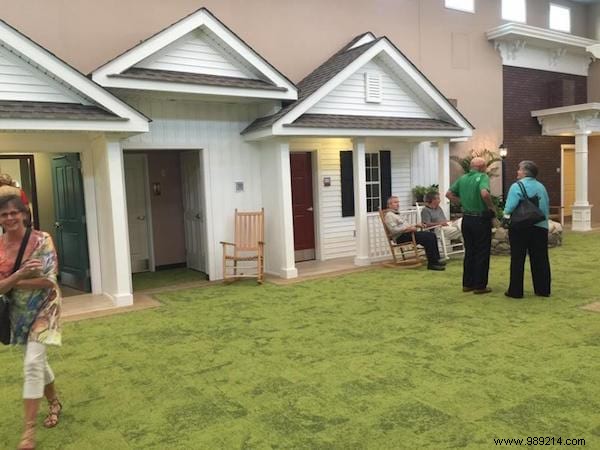
At age 92, Norma had a funny habit… a habit that saddened those around him.
Every evening around 5:30 p.m., she warned the staff of her retirement home that she had to leave.
The staff would ask her why she had to leave them and she would quietly reply that she had to go take care of her mother at home.
Of course, his mother had been dead for many years.
This type of reaction is fairly common in older people with Alzheimer's disease.

For example, Walter, another resident of this nursing home, demanded his breakfast at 7:30 p.m. every evening.
For John Makesh, the director of this retirement home, this kind of anecdotes is nothing exceptional. It's even his daily lot.

But it is precisely these anecdotes that gave him the idea to make some changes to the retirement home he runs.
"At first, I thought I knew quite a bit about elder care. But the more time I spent with my patients, the more I realized I didn't know much."

Theconfusion is not uncommon in people with Alzheimer's. But for Jean Makesh, there had to be a way to limit its scope.
For him, the environment in which we live has a huge impact on our daily lives. It was then that an idea began to emerge in his mind.

"How about we make a retirement home that looks like a small village?" he wonders.
"A small village with a sunrise and a sunset inside the building? And even a moon and stars at night? We could even go further and build small houses in the style of the 30s and 40s?"

And that was just the beginning of his project! Subsequently, he also added sound therapy and aromatherapy.
Not to mention the mat that looks like grass on the floor!
Result:he has created an absolutely unique and warm care center.

After the success of the first Lantern Center in Madison, Ohio, USA, two new centers have been established.
Each time, the patients are accommodated in a small "house", located on a street inside the center.
For many of the boarders, it feels like their childhood neighborhood and brings back fond memories.
The artificial sky lights up and darkens to respect the patient's biological clock.

During the day, you can hear natural noises. Scents of peppermint or citrus are diffused in the air.
We know that studies have shown the positive impact of aromatherapy on the cognitive functioning of patients.
As a result, we understand the whole point of this approach.
In this care center, there is even a street where residents can meet to talk.
Yet beyond the comfort provided, Jean Maeksh wants to change the way we see this type of disease.
Often the nursing staff imposes an unnatural living environment and schedules on the residents, which creates tensions for residents.
And the nursing staff tries to solve these problems by giving them medicine.
Antipsychotic drugs or other drugs are then given to combat anxiety.

In other words, if a person has dementia, they do not have access to the resources necessary to be stimulated.
Sadly, there is still no cure for Alzheimer's disease. But this type of approach encourages us to think about the disease differently.

"In 5 years, we hope to be able to make our patients more independent," says Jean Makesh.
This type of innovative approach restores hope to families.
In France too, extraordinary initiatives are emerging.
This is the case of therapeutic or sensory gardens as they are set up in retirement homes.

Do you know someone who suffers from Alzheimer's disease?
We recommend 100 ideas to support an Alzheimer patient.
This book contains hundreds of practical tips to facilitate the daily life of the sick person and their companion.